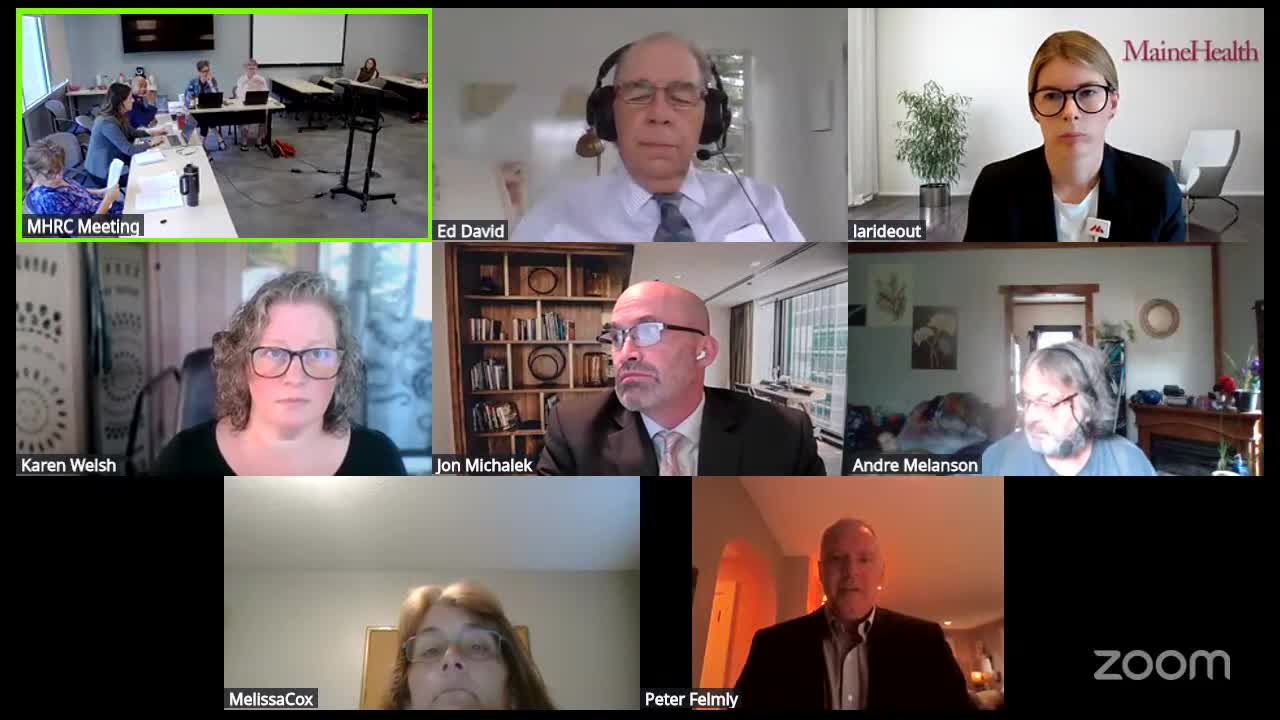Karen Welch alleges discrimination against Franklin Memorial Hospital during hearing
July 30, 2025 | Human Rights Commission, Maine, Executive, Maine
This article was created by AI summarizing key points discussed. AI makes mistakes, so for full details and context, please refer to the video of the full meeting. Please report any errors so we can fix them. Report an error »

The Maine Human Rights Commission convened on July 28, 2025, to address significant cases of alleged workplace discrimination, including a notable case involving a former employee of Franklin Memorial Hospital. The meeting highlighted the ongoing challenges faced by individuals seeking justice in employment disputes, particularly those involving caregiver responsibilities.
One of the primary discussions centered around Karen Welch, who claims she faced discrimination from her employer due to her caregiving duties for her son. Welch argued that her former employer's actions were retaliatory and that the investigation into her claims was flawed. She detailed her experiences, asserting that her manager's behavior became increasingly hostile after she requested time off to care for her son, who was facing severe health issues. Welch emphasized that the investigator's report omitted critical details about her situation, which she believes would support her claims of discrimination.
The commission heard Welch's testimony, where she outlined her struggles with performance evaluations and the impact of her family crisis on her work. She argued that her employer failed to consider her circumstances and did not provide adequate support or accommodations, which she believes contributed to her termination.
In response, Laura Rideout, representing Franklin Memorial Hospital, defended the hospital's actions, stating that the decision to terminate Welch was based on documented performance issues that predated her leave. Rideout maintained that the hospital had fulfilled its obligations under the Maine Human Rights Act and that the investigator's findings of "no reasonable grounds" for discrimination were well-supported.
The commission ultimately decided to table the case until the next meeting on August 25, allowing for further review and consideration of the evidence presented. This decision underscores the commission's commitment to thoroughly examining claims of discrimination and ensuring that all parties have the opportunity to present their cases.
As the commission continues its work, the outcomes of such cases will have significant implications for employees navigating similar challenges in the workplace. The discussions from this meeting reflect broader issues of workplace rights, caregiver responsibilities, and the need for fair treatment in employment practices. The commission's ongoing deliberations will be closely watched by advocates and community members alike, as they seek to uphold human rights standards in Maine.
One of the primary discussions centered around Karen Welch, who claims she faced discrimination from her employer due to her caregiving duties for her son. Welch argued that her former employer's actions were retaliatory and that the investigation into her claims was flawed. She detailed her experiences, asserting that her manager's behavior became increasingly hostile after she requested time off to care for her son, who was facing severe health issues. Welch emphasized that the investigator's report omitted critical details about her situation, which she believes would support her claims of discrimination.
The commission heard Welch's testimony, where she outlined her struggles with performance evaluations and the impact of her family crisis on her work. She argued that her employer failed to consider her circumstances and did not provide adequate support or accommodations, which she believes contributed to her termination.
In response, Laura Rideout, representing Franklin Memorial Hospital, defended the hospital's actions, stating that the decision to terminate Welch was based on documented performance issues that predated her leave. Rideout maintained that the hospital had fulfilled its obligations under the Maine Human Rights Act and that the investigator's findings of "no reasonable grounds" for discrimination were well-supported.
The commission ultimately decided to table the case until the next meeting on August 25, allowing for further review and consideration of the evidence presented. This decision underscores the commission's commitment to thoroughly examining claims of discrimination and ensuring that all parties have the opportunity to present their cases.
As the commission continues its work, the outcomes of such cases will have significant implications for employees navigating similar challenges in the workplace. The discussions from this meeting reflect broader issues of workplace rights, caregiver responsibilities, and the need for fair treatment in employment practices. The commission's ongoing deliberations will be closely watched by advocates and community members alike, as they seek to uphold human rights standards in Maine.
View full meeting
This article is based on a recent meeting—watch the full video and explore the complete transcript for deeper insights into the discussion.
View full meeting
